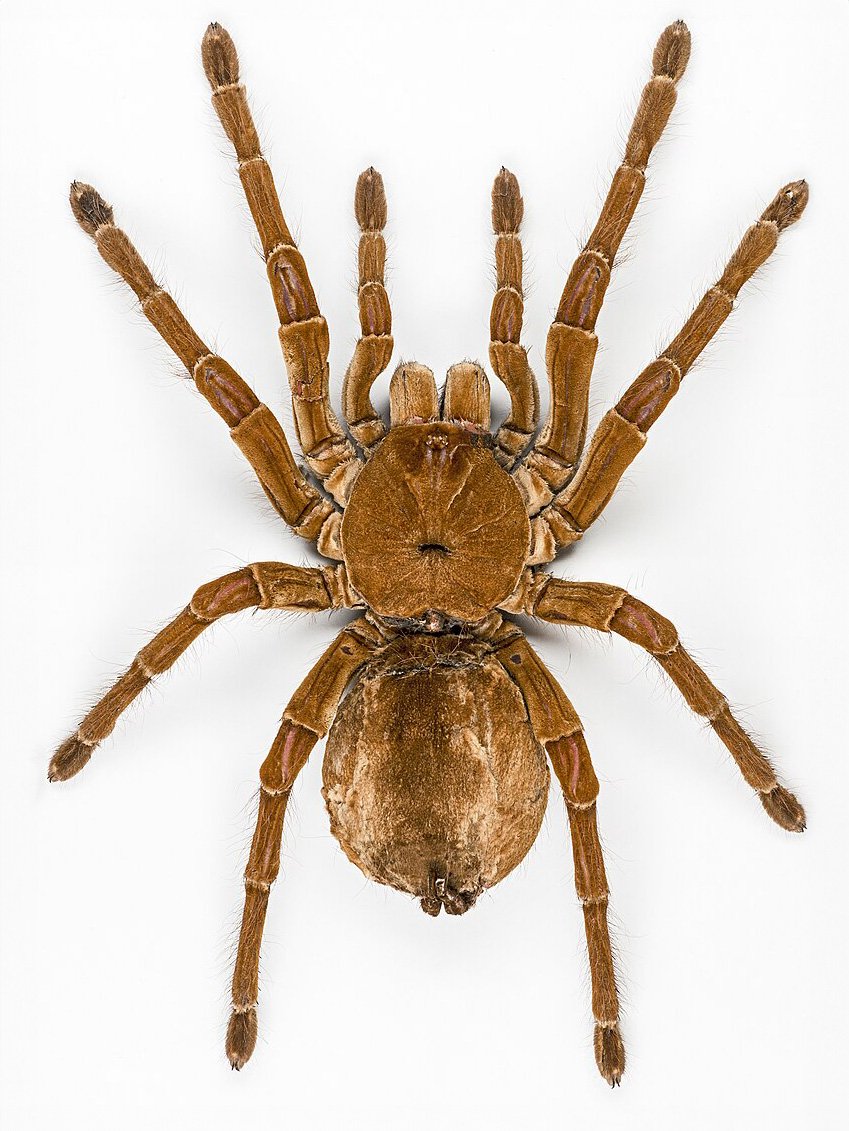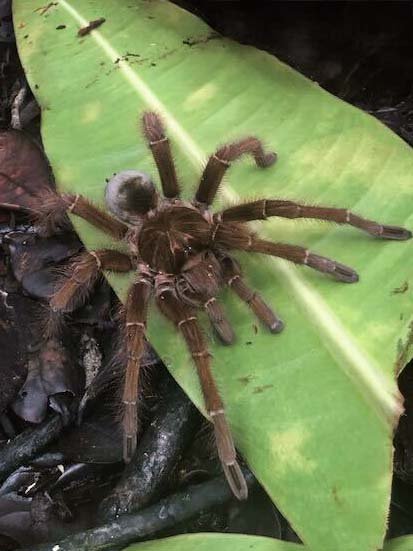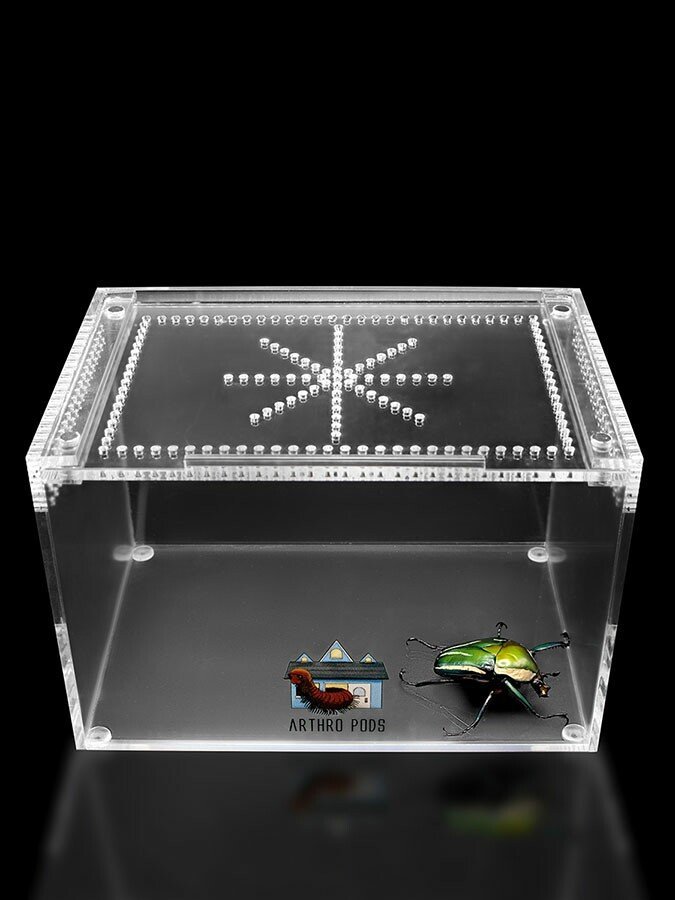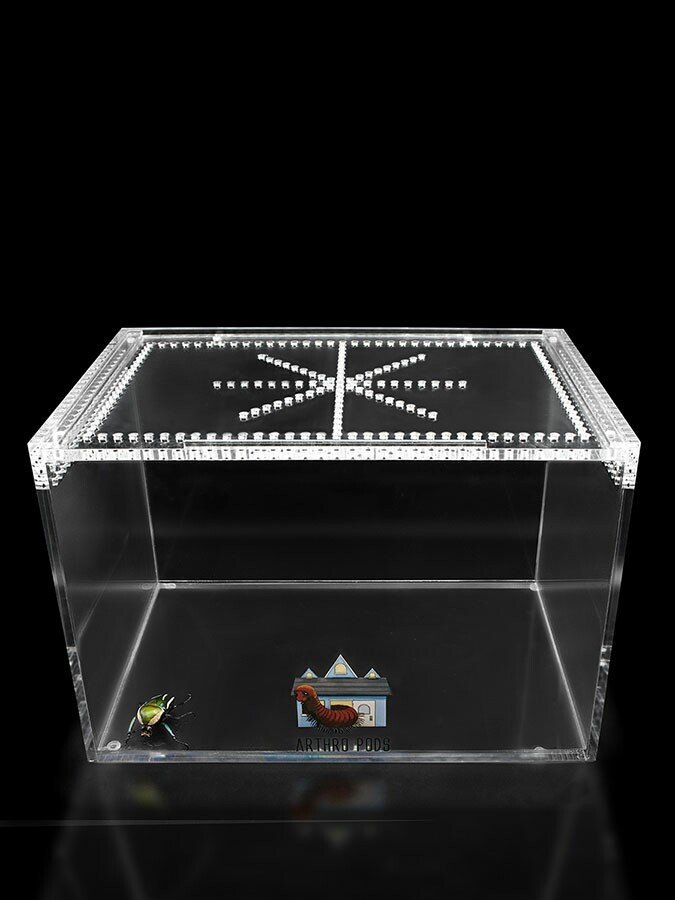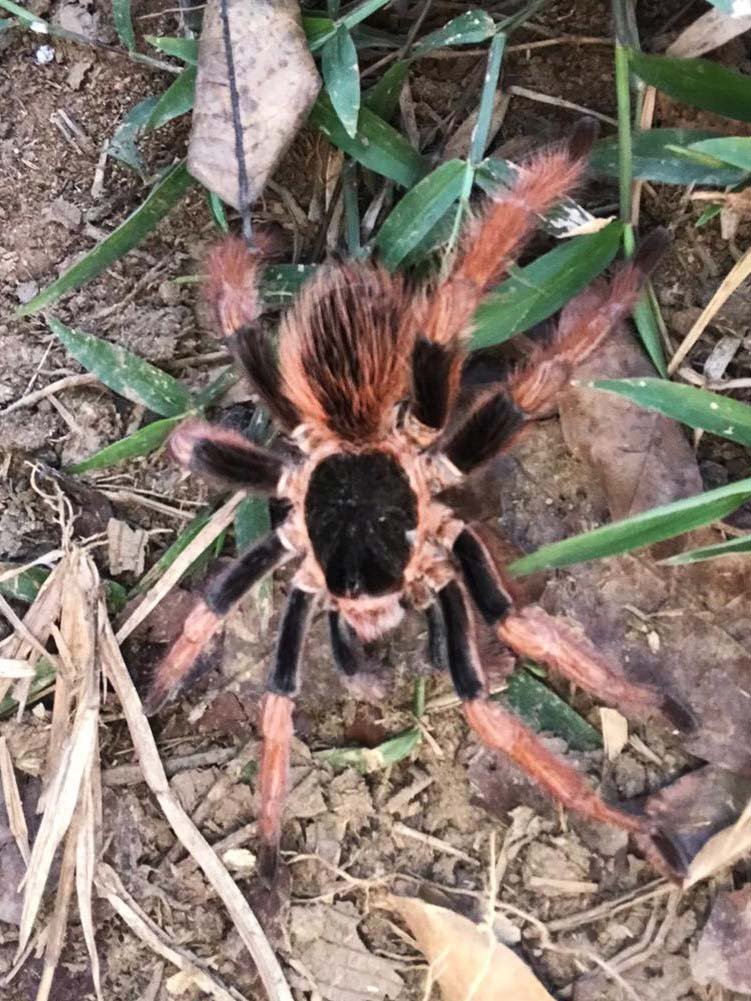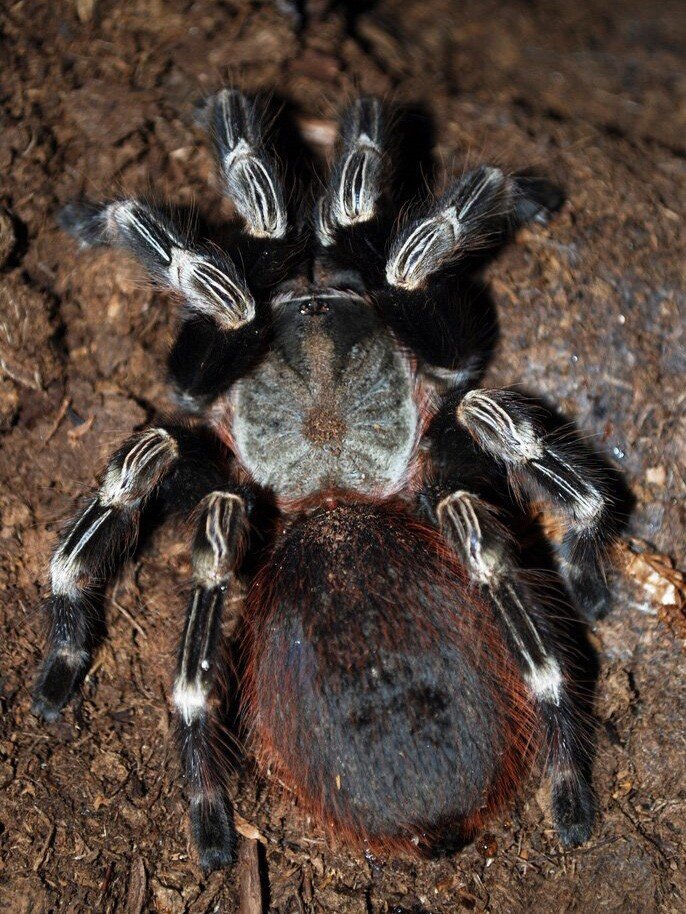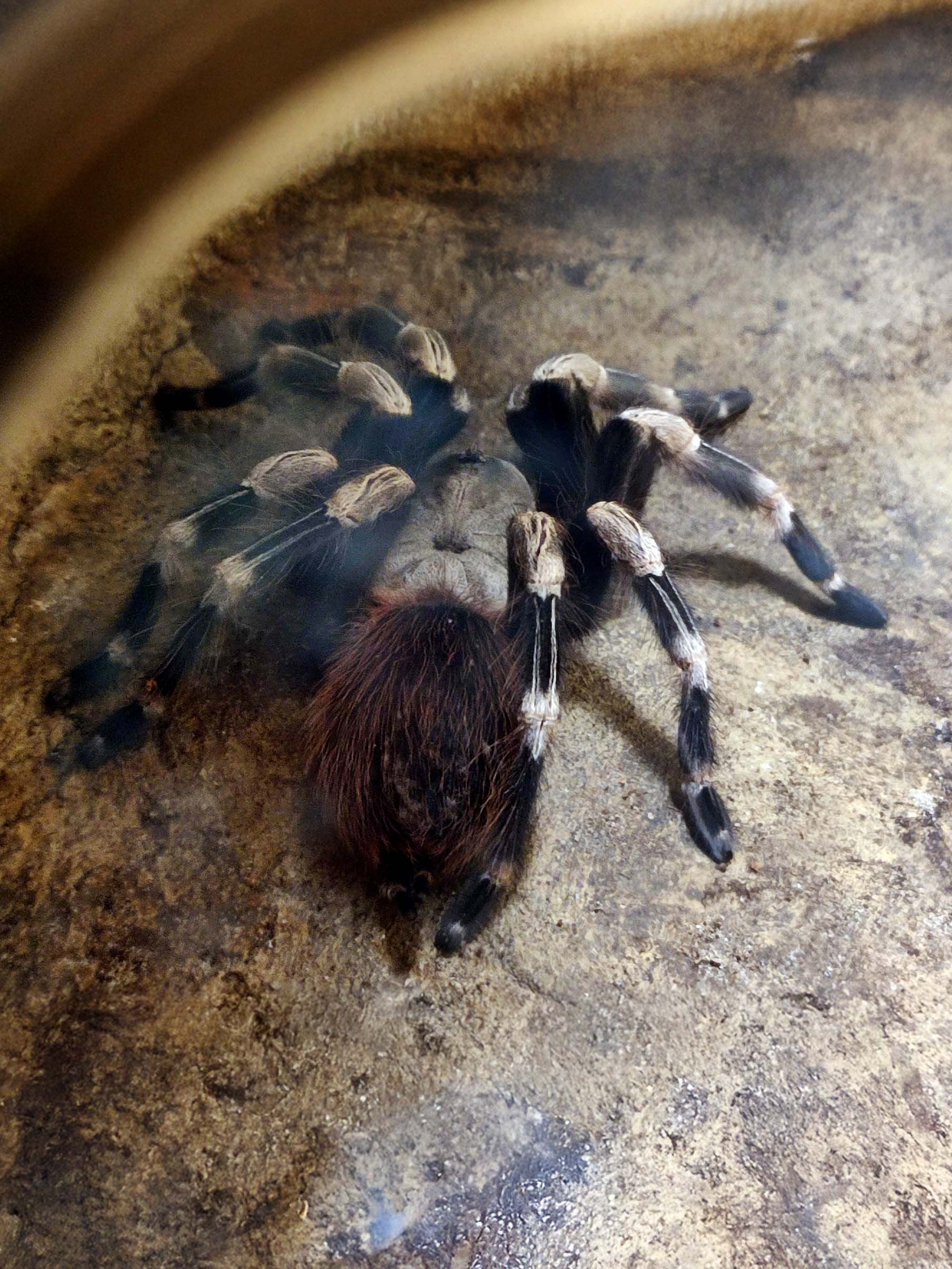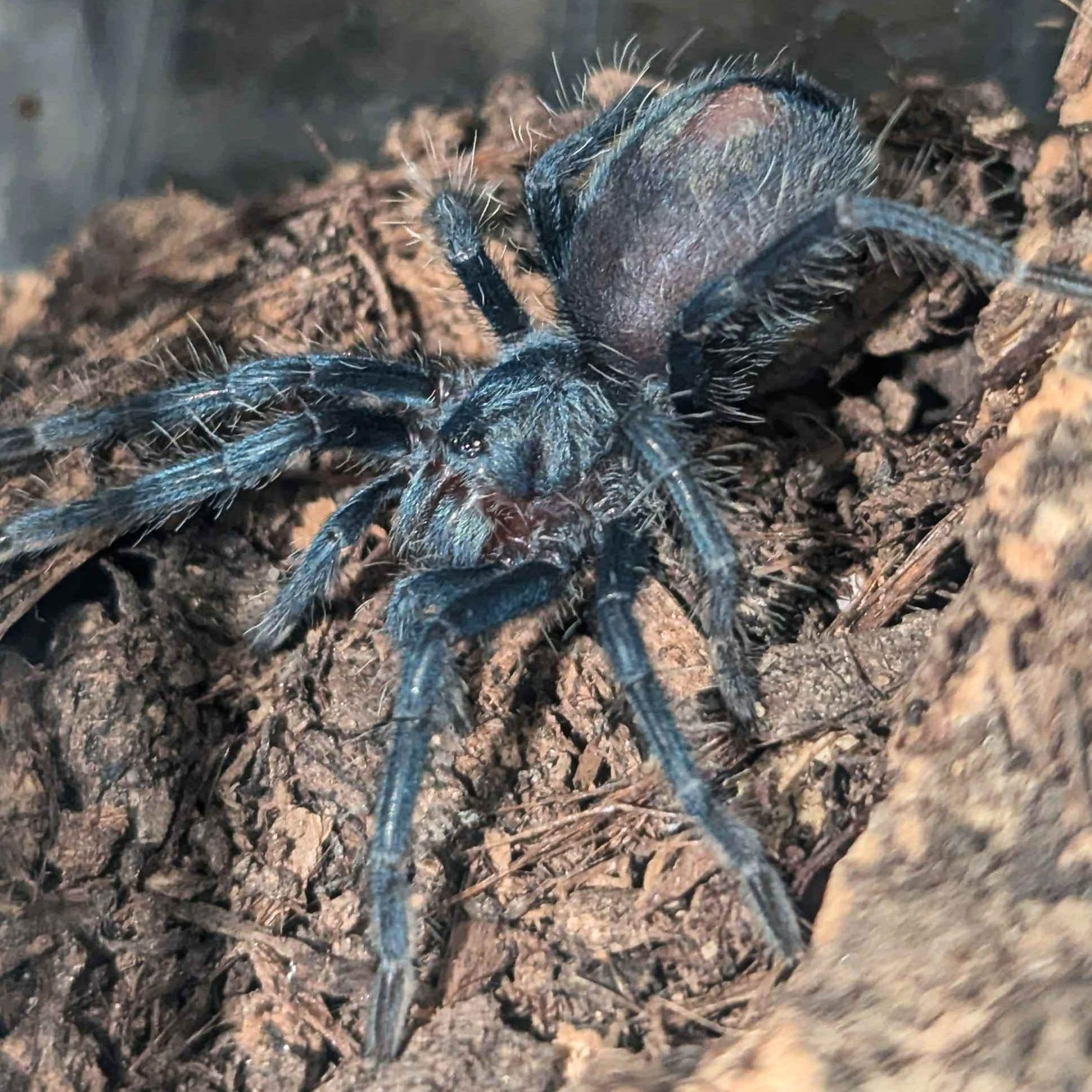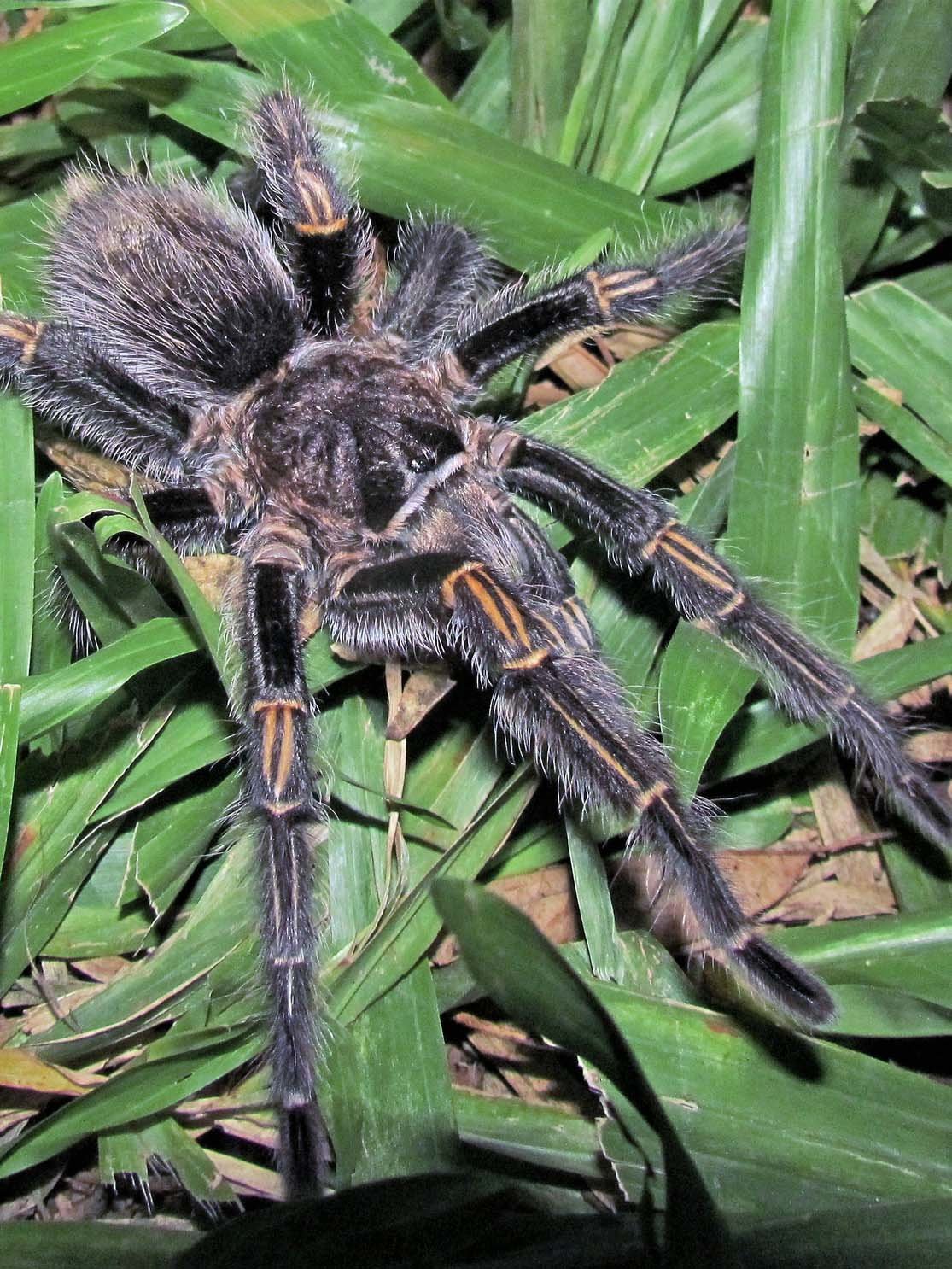Theraphosa blondi
The Theraphosa blondi, or Goliath Birdeater Tarantula, is arguably one of the largest tarantulas known to human beings, and believe it or not, you can own them. These guys are for only the most experienced keepers as their level three urticating hairs are known to cause blisters and painful sores in humans exposed to them, and that’s not even talking about the enormous fangs they come equipped with, which are large even for tarantulas. This is a must-have in any expert keeper's repertoire, and as a captive-bred species, you will enjoy them for the entirety of their lifespan.
The Theraphosa blondi, or Goliath Birdeater Tarantula, is arguably one of the largest tarantulas known to human beings, and believe it or not, you can own them. These guys are for only the most experienced keepers as their level three urticating hairs are known to cause blisters and painful sores in humans exposed to them, and that’s not even talking about the enormous fangs they come equipped with, which are large even for tarantulas. This is a must-have in any expert keeper's repertoire, and as a captive-bred species, you will enjoy them for the entirety of their lifespan.

The Theraphosa blondi, or Goliath Birdeater Tarantula, is arguably one of the largest tarantulas known to human beings, and believe it or not, you can own them. These guys are for only the most experienced keepers as their level three urticating hairs are known to cause blisters and painful sores in humans exposed to them, and that’s not even talking about the enormous fangs they come equipped with, which are large even for tarantulas. This is a must-have in any expert keeper's repertoire, and as a captive-bred species, you will enjoy them for the entirety of their lifespan.
What's the ideal diet for a Goliath Birdeater Tarantula?
All Tarantulas can eat a variety of feeders. Stick to crickets, dubia roaches, silkworms, horned worms occasionally, and a superworm or mealworm as the occasional treat!
How should I keep a Goliath Birdeater Tarantula?
For this particular creature, you can start with a small Terrestrial Terrain enclosure if under a ¼” - 1.2” spiderling (sling), and when they get to be about 1” in size, you will want to upgrade to the medium or large Terrestrial Terrain enclosure. Feed them as slings once a week, twice if their opisthosoma (abdomen) looks small, but if the opisthosoma is wider than their prosoma (pneumothorax), then wait a couple of days to feed. For juveniles or adults, stick to feeding once a week, nothing larger than their opisthosoma. Make sure to keep a full water dish at all times; wider and deeper is fine. Your tarantula can’t drown; they float on water.
How long could a Goliath Birdeater Tarantula live?
Females are believed to live roughly 20+ years, with males reaching up to 3-4 years on average. All estimates are based on multiple sources.
Some photos provided by iNaturalist, credit to:
Antoine Guiguet, some rights reserved (CC BY)
Guillaume Delaitre, some rights reserved (CC BY)
martin ingemansson, some rights reserved (CC BY)



